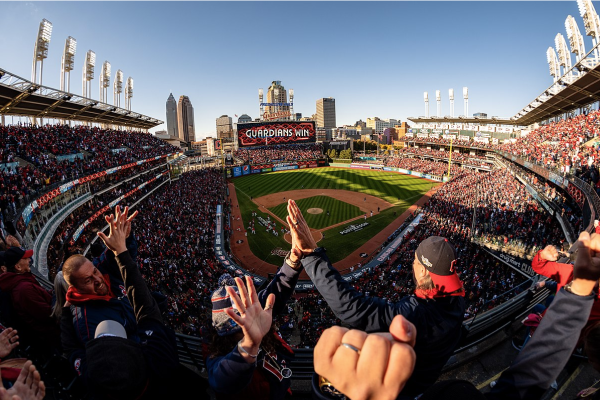The Major League Baseball (MLB) playoffs are impending. As my anxiety grows in anticipation of the first game Sept. 30 — to which I have tickets, unless the New York Yankees utterly collapse and lose home-field advantage — so does my abject rage about the way the playoffs are structured.
As I explained to my parents while half asleep, the postseason bracket is asinine for at least four reasons: It punishes division winners, encourages mediocrity, strips us of the opportunity to watch dramatic winner-take-all games and is an ill-disguised cash grab.
Before 2022, 10 teams made the playoffs out of 30. In each league, the three division winners earned automatic placement into the division series (DS) — makes sense, right? — and the two top non-division winners played a single wild card game for the last DS spot. If two teams ended the season tied, they played a final “Game 163” to determine who won the division or made the playoffs. This was an almost-perfect system. Winning the division was an accomplishment, fans got to watch a dramatic winner-take-all game or two and the playoffs were exclusive enough that mediocre teams did not earn a spot.
Of course, Commissioner Rob Manfred — famous for derisively comparing the World Series trophy to “a piece of metal” — had to go and ruin it.
Now, 12 teams make up the postseason — six from each league. The two highest ranked division winners receive an automatic spot in the DS. The third division winner? Stuck in a wild card series. It makes no sense that teams play 162 games trying to win their respective divisions, yet one team that succeeds does not reap the benefits.
This is all not to mention that the way the wild card series themselves are structured is nonsensical. Three teams — the three top teams who did not win their divisions — make the wild card series, along with that ill-fated worst division winner. The top two wild card teams play each other, while the last wild card team is left to tackle the division winner.

Except, the last wild card team is luckier than they should be. More than likely, the best couple of wild card teams have a better record than the worst division winner. Some divisions are more competitive than others, after all. This year, for example, my Yankees are second in their division and destined for the wild card — but they have a better record than every team in the American League save the Blue Jays, who lead the division.
If I were a wild card team, I would be a lot happier playing the worst division-leading Detroit Tigers than I would be playing the Yankees. Yet the lowest-seeded wild card team will more than likely get to face the Tigers, while the second wild card team will meet the Yankees. By this logic, being wild card team number three is a better spot to be in than wild card team number two, especially given that neither team earns home field advantage. This twisted logic will always hold true unless all three division winners somehow happen to be the three best teams in the league — an unlikely scenario. As it stands, the playoff structure almost always incentivizes being lower in the wild card standings. If I ever write a column requesting that the Yankees lose, you will know why.
Further, there is no reason for 12 teams to make the playoffs. It forces some sort of odd structure where not all division winners are rewarded for winning the division and it gives mediocre teams the opportunity to benefit from the randomness of October baseball. As I eloquently informed my parents — who by now are sick of hearing me talk about baseball — “It should be an accomplishment to make the playoffs, not an 85-win activity.”
And the answer to why it is there in the first place is evident: By adding another team, MLB collects the revenue of the extra playoff games. Instead of having one wild card game per league, there are now up to six: Each wild card series is a best of three. I suppose MLB felt that 10 extra games of revenue was worth having a clown show of a postseason.
A clown show, indeed, but a boring one. Turning the wild card game into a three-game series yanked the exhilaration out of the wild card. In fairness, it also reduces the likelihood I suffer a heart attack — but what even is October baseball without a pulse over 100? And because MLB extended the postseason by adding extra games, it entirely did away with the single best thing in baseball besides Aaron Judge: Game 163.
Now, if teams are deadlocked to end the season, absolutely nothing interesting happens. The winner of the division or wild card spot is the team with the better head-to-head record during the season. Gone is the opportunity for drama — and once again, what is baseball without sheer terror?
So for approximately the 100th time, I request that Rob Manfred stop ruining my life — or at least, my Octobers. Is there a difference, really?